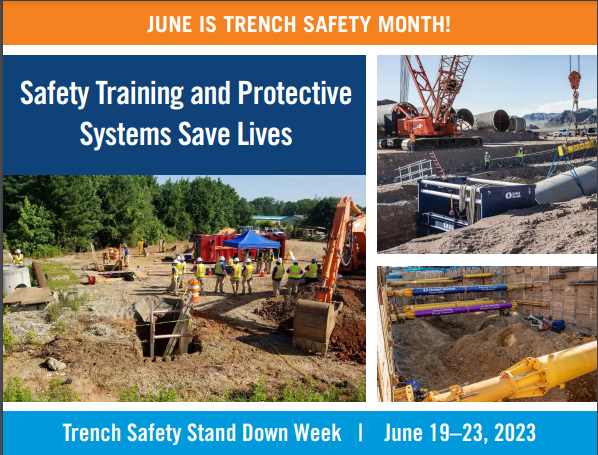
Last year in the US, 39 construction workers died in trench collapse. Trench collapse accidents are preventable and usually occur because of negligence for several reasons:
- Lack of Proper Planning: Trench accidents can be prevented through careful planning and assessment of the work site. Negligence may arise if there is a failure to adequately plan the excavation process, including conducting a thorough analysis of the soil conditions, identifying potential hazards, and implementing appropriate safety measures.
- Inadequate Training: Insufficient training of workers in trench-related safety procedures can lead to accidents. Negligence may be evident if employers fail to provide comprehensive training on safe trenching practices, including recognizing hazards, using protective equipment, and following proper excavation techniques.
- Absence of Protective Systems: Negligence can be a factor when protective systems, such as trench boxes, shoring, or sloping, are not properly installed or utilized. These protective measures are designed to prevent cave-ins and provide a safe working environment. Failure to implement such systems or using them improperly demonstrates negligence.
- Ignoring Safety Regulations: Neglecting safety regulations and guidelines established by regulatory authorities is a significant cause of trench accidents. Construction companies have a responsibility to adhere to safety standards and regulations that exist to prevent accidents. Negligence occurs when these regulations are ignored or not followed adequately.
- Inadequate Inspection: Negligence can be attributed to the lack of regular inspections during trenching operations. Regular inspections help identify potential hazards, ensure compliance with safety procedures, and prompt corrective actions if necessary. Failure to conduct inspections or address identified issues reflects negligence.
- Failure to Provide Adequate Supervision: Negligence can be present when proper supervision and oversight are lacking. It is the responsibility of employers or site managers to ensure that workers follow safety protocols, use appropriate equipment, and address any safety concerns promptly. Inadequate supervision can contribute to trench accidents.
- Complacency and Time Constraints: Negligence may arise from complacency or a rush to meet project deadlines. When workers become complacent about safety measures or prioritize speed over safety, the risk of trench accidents increases. Cutting corners or ignoring safety precautions due to time constraints can have severe consequences.
By prioritizing safety and taking necessary precautions, trench accidents can be significantly reduced or eliminated
The construction industry must now intensify efforts to improve trench safety across all projects. This includes a comprehensive evaluation of excavation procedures, the implementation of stringent safety guidelines, and regular training programs for workers. Contractors and project managers should ensure that all necessary precautions, such as benching, shoring, shielding, and sloping, are in place to fortify trenches and protect workers from potential hazards.
In addition to individual construction companies taking responsibility for trench safety, fostering a culture of collaboration and communication among all stakeholders is vital. Open dialogue between workers, supervisors, and management promotes awareness of potential risks and encourages the reporting of unsafe conditions. Regular toolbox talks and safety refresher sessions should be conducted to keep workers informed about best practices and to address any concerns or questions they may have.
Regulatory agencies, such as the Occupational Safety and Health Administration (OSHA), have a crucial role to play in ensuring trench safety compliance. The JFK Airport incident highlights the need for increased inspections and enforcement to hold non-compliant companies accountable. Strict penalties and fines should be imposed on those who disregard safety regulations, serving as a deterrent and reinforcing the importance of adherence to safety standards.
In New York, Carlos’ Law, a law named after Carlos Moncayo, a construction worker who died in a trench collapse in 2015, imposes stricter penalties, including criminal charges, on contractors who knowingly violate safety regulations and put workers’ lives at risk.
The law aims to hold accountable those who prioritize profits over worker safety, serving as a powerful reminder that the construction industry must prioritize trench safety and ensure compliance with established regulations to prevent avoidable accidents and tragedies.
By fostering a safety-centric culture, conducting regular training programs, and strengthening regulatory oversight, we can strive to prevent future accidents and protect the lives of those working in the construction sector.
This week, The National Utility Contractor Association is inviting all employers in the construction industry to conduct a trench safety stand down and discuss with their workers what can be done to improve trench and excavation safety on their construction sites.
